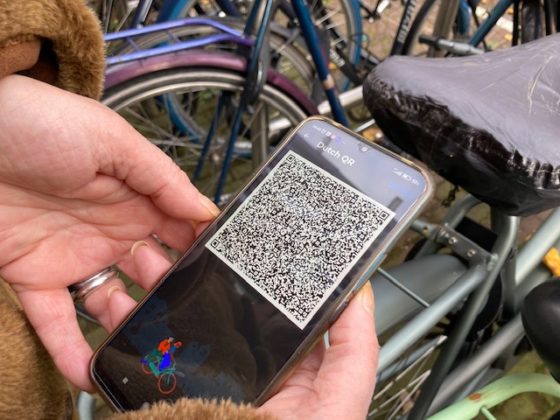The pros and cons of 2G versus 3G: what the experts say


Scientists, sociologists and ethicists have been analysing whether it is justified to impose further coronavirus restrictions on the 15% of Dutch adults who are not fully vaccinated.
In areas in Germany, and Austrian sectors such as hospitality, only people who have proof of either complete vaccination or recovery from coronavirus are allowed entry. This has been dubbed ‘2G’ as opposed to the current Dutch rule allowing three categories of people, including those with a negative corona test in the past 24 hours (known as ‘3G’).
The Dutch government is now planning to give festival and congress organisers the right to only admit people who have been fully vaccinated or recently recovered from coronavirus to their events.
Questions
But experts in the fields of virology, ethics and sociology have posed questions about whether the government could or should impose the limitation.
Menno de Jong, a clinical virologist at Amsterdam UMC and member of the Outbreak Management Team, said that although the 2G policy would better protect unvaccinated people and stop some spread, actually a ‘1G’ policy of testing everyone for access would work best.
‘Excepting the old and vulnerable, vaccine efficacy is still quite good at preventing severe disease, but it’s becoming less effective in decreasing immunity and preventing infection, especially with the Delta variant,’ he told DutchNews.nl.
‘1G’
‘What you could accomplish with 2G – and I’m not necessarily a proponent of that – is that for instance if unvaccinated people couldn’t enter a nightclub, it would prevent unvaccinated people from getting infected. That would prevent the unvaccinated person from becoming severely ill, and providing a burden to hospitals, which is the big issue.’
However, he pointed out that people who are currently spreading infection at places like nightclubs are likely to be vaccinated but carrying a mild infection (since the unvaccinated have had a test), while a typical, younger nightclub population may be less likely to end up in hospital than elderly or clinically vulnerable people.
‘1G probably would be even better: testing everybody! Then you would be less likely to have an infected person in every setting,’ he added.
Options
Anton ten Clooster, assistant professor at the Tilburg School of Catholic Theology told the Nederlands Dagblad that from an ethical point of view, more restrictions could unfairly remove options from unvaccinated people. ‘
You can ask non-vaccinated people to take more care than vaccinated people,’ he said. ‘Everyone in society must do their bit. Lots of people had done that by getting vaccinated, and you can ask those who have not: what will you do instead?
‘They could for example, keep a distance or wear a medical face mask. They could get tested frequently. But by introducing 2G, you remove that option. Are you giving them enough possibility to do things right?’
Peter Achterberg, a professor of sociology at Tilburg University, also told the ND that a 2G policy could lead to stigmatisation of those who had not been vaccinated. ‘But really, what is the alternative?’ he said. ‘It seems to be lockdown for everyone, which is not easy for the government to explain, especially as they have repeatedly said that vaccination is the way out of the crisis.’
Boost
While the government on Friday announced that it is speeding up plans to offer boosters to healthcare workers and the over-60s, some wonder why the Netherlands has been slower than other countries to offer booster jabs.
‘Epidemiologically, it would have been great if we would have boosted part of the population [with extra jabs] where we know immunity is waning, at an earlier stage,’ said De Jong. ‘It would have had an effect on transmission.’
‘All of the focus has been on if the vaccine is effective in preventing severe infection, which it is except for highly vulnerable or immune compromised people. The discussion is now shifting to the vaccine’s role in preventing further spread.’
Thank you for donating to DutchNews.nl.
We could not provide the Dutch News service, and keep it free of charge, without the generous support of our readers. Your donations allow us to report on issues you tell us matter, and provide you with a summary of the most important Dutch news each day.
Make a donation